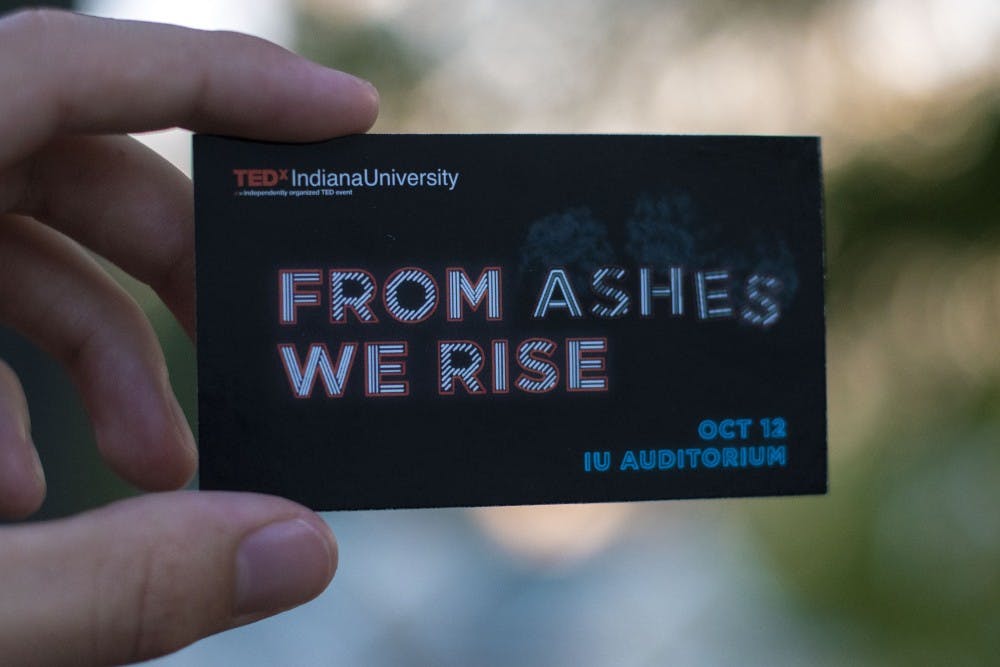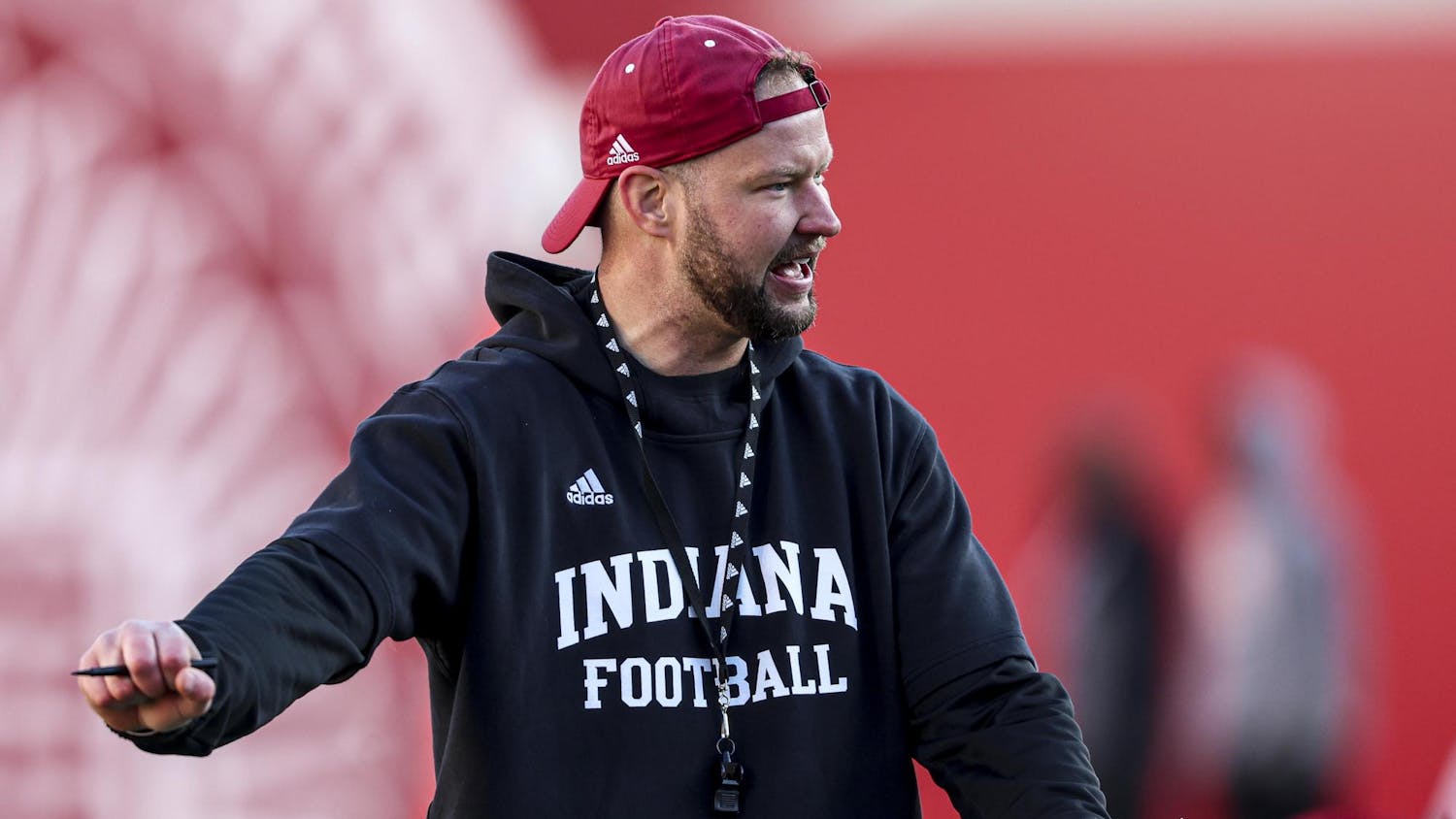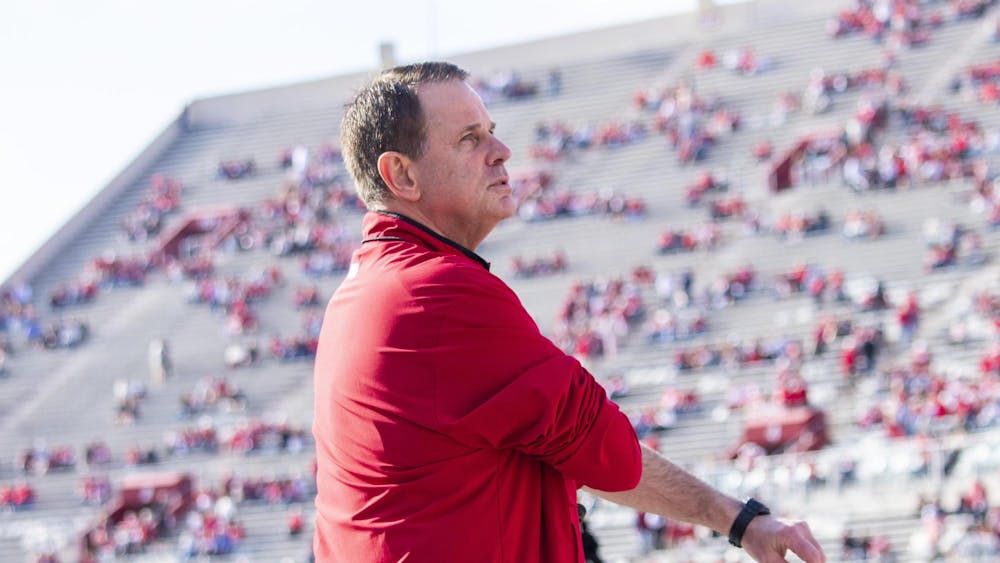TedxIndianaUniversity’s fourth annual conference boasted six diverse speakers – from a NASA scientist to a boat craftsman – who spoke Friday night in the IU Auditorium on the theme “from ashes we rise,” about overcoming adversity.
“What do you do when that happens?” TedxIU president and senior Krishna Pathak said. “You can sit there in the sorrow and ashes, or you can choose to stand back up.”
Each of the speakers chose to stand back up after facing defeat and imparted their lessons to the audience. Here are six stories from this year’s conference.
Jonathan Jones, executive director of Motivate Our Minds
Jones found an unofficial mentor in William Lewis, the former director of diversity recruitment, retention and outreach for the Kelley School of Business, when he came to the IU campus in high school. Jones now mentors young people through the nonprofit Motivate Our Minds.
Mentoring is two things, he said. It’s about making someone feel your love, and it’s selfless concern for another’s success and development. Jones stressed that outcomes are more successful when work is invested in it by others.
Dr. Anima Anandkumar, director of machine learning at NVIDIA
Artificial intelligence is not going to simply take over the world. Intelligence, at its base definition, is the ability to acquire and apply knowledge and skills, Anandkumar said. But AI only has the ability to execute a certain task.
The obstacle in advancing AI is the inability to instill human qualities such as instinct and deliberateness, which Anandkumar is working on through algorithm development.
Jeff Mittman, COO of Bosma
Mittman calls himself the luckiest man in the world.
In 2005, he was ambushed in a road-side attack in Baghdad, Iraq. His eyes, nose, lips, teeth and arm were destroyed or badly injured.
For the entirety of his 35-years of life before this, Mittman wanted to be at the center of attention.
“It was all me, and I loved it,” he said. “Everything revolved around me.” He called himself an evil genius at training soldiers, and had moved through the ranks to master sergeant.
After his injury, he realized life would go on for other people even if he wasn’t the one at the helm.
“I’m no longer the center of the world,” he said. “When you’re not the center of the world, you can focus on other people.”
Trevor Paetkau, founder of Ashes Still Water Boats
Leaving a corporate job to build artisan canoes was supposed to be the dream. But behind every beautiful boat, the praise and success, there was the anxiety of deadlines and money and the hard physical work of the craft. Paetkau loved his boats, but he didn’t love the work he was doing.
What he had always loved to do was tell stories.
“I needed to find the thing, the real story behind the boats,” he said.
He began to relate boats to human anatomy and realized people’s responses to the boats came from a place of being able to relate to their human likeness. By keeping humans at the center, Paetkau could accept the flaws in his craft and deal with the negative aspects.
Likewise, everyone's life story includes flaws you see and flaws you don’t see, he said.
“We don’t get to choose whose stories we tell. We only get our own,” he said. “Make it good.”
Justin Phillips, founder and executive director of Overdose Lifeline
Aaron Phillips is permanently 20 years old. He died from a heroin overdose in October 2013.
His mother, Justin Phillips, equated opioid addiction to fire. It comes fast and when you least expect it, and it destroys anything in its path.
“Every day I choose to rise up from my ashes and be Aaron’s voice,” Phillips said.
She aims to spread awareness of the opioid addiction in the United States, which she said killed 72,000 people in 2017.
Dr. Giada Arney, research space scientist at NASA Goddard
“We are all made of star dust,” Arney said. All of the chemicals in our DNA literally came from the birth of the very first stars, intimately connecting all of us to the cosmos and universe.
Knowing the Earth's birth story has helped scientists in the search for life on other planets. These planets are too far to reach with probes or even see well with a telescope, but scientists can use a process called spectroscopy to determine if oxygen and methane, signs of life, are present.
“Either discovery that life is rare or common would be profound,” she said.
Arney encouraged humans to be stewards of the Earth in the grand scheme of things.






